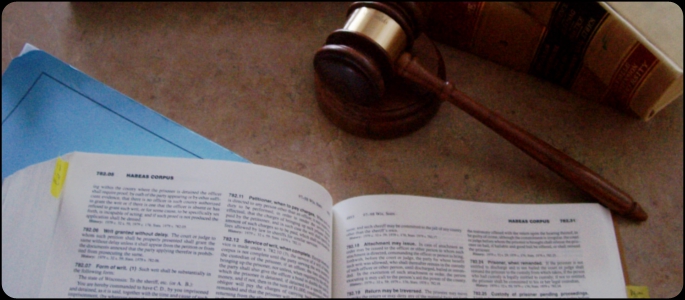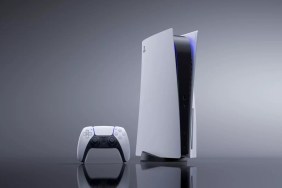If you were told last year that the European PlayStation 3 was about to become an endangered species, you probably would have laughed. Fast forward to February and the console was effectively banned in Europe for 10 days. With the 10 day ban ending tomorrow, Sony will be facing LG in court and battling it out over whether the PS3 will be sold in the Netherlands – Europe’s main point of import – and over who will be paying who in a sure-to-be-expensive court case. To discuss the landmark showdown, the future of the PS3 in Europe, as well as the United States, and even the future of the Netherlands, PlayStation LifeStyle talked to the award winning intellectual property activist, author and online gaming network founder Florian Mueller.
Hi Florian, can you start by telling us a bit about yourself and your work in intellectual property activism?
I’ve been in the IT industry for more than 25 years. I started at age 15 writing articles for computer magazines and authored 12 computer books. I then focused on marketing and business development projects, most of them related to transatlantic software distribution partnerships. My biggest success in that area was the work I did for Blizzard Entertainment: I took Warcraft II to the #1 spot in the German sell-through charts for PC games, which was Blizzard’s first number one hit ever. I was named in the credits of Warcraft II, Diablo I, and Starcraft I. I founded an online gaming network that we sold to a telecoms operator in early 2000, and then became involved with MySQL AB, the maker of the namesake open source database. Through my work for them as a strategic adviser I found out about a legislative process in Europe concerning software patents and took political action against that proposal — which we indeed defeated in 2005.
How long will the court hearing take? Is this something that we can expect to be sorted out in a matter of days?
Unlike court hearings in similar cases in the US, this one is likely going to take only a few hours.
If Sony is successful tomorrow, LG will have to pay them for any damages incurred – how much do you believe that they will have to pay?
Holding seized goods for about a week is probably not going to prove too costly. LG would have to be much more concerned about Sony defending itself successfully in a subsequent main proceeding, which would probably take more than a year.
Will the cost simply cover the loss of sales, or also the loss of subsequent sales of PS3 titles?
Good question. Continental European courts tend to be much more conservative about damage awards than US courts. It will be easier for Sony to prove the loss of hardware sales than to demonstrate that certain PS3 game sales weren’t realized. LG would argue that those customers bought them anyway, just a little later.
Conversely, if LG are successful, how much do you think the royalties will cost Sony?
LG made a commitment to the Blu-ray Disc Association that it would grant licenses to its essential Blu-ray patents on fair, reasonable and non-discriminatory terms. This means Sony is entitled to a license, and LG can’t overcharge. Sony will probably argue that the technologies covered by the patents LG asserted, two of which are specific to the display of subtitles, are only a small part of all patented inventions required to build a PlayStation. LG may be able to demonstrate that other major companies paid relatively high royalties. I don’t want to speculate about the outcome. Given that there are thousands of potentially patentable inventions in a PlayStation, I would probably think of much less than $10 per unit, but that’s just my personal take and could be off base.
LG’s possible success could lead to “additional injunctions in the Netherlands” – what might these injunctions entail?
If Sony can’t defend itself against the three patents LG asserted, LG might seek injunctions. In particular, they could go after Sony’s resellers.
What are the chances of an actual Europe-wide permanent ban on PS3s?
The European patent system is still fragmented, despite the existence of a European Patent Office. But LG holds patents in a number of European countries. I wouldn’t be surprised if they sought, or had already sought, the enforcement of Blu-ray patents against Sony in other European countries.
What does this mean for other continents like North America?
The Dutch process is very quick because we talk about fast-track decisions that will later be reviewed in lengthier main proceedings, and even those main proceedings may very well be concluded before the first decision is made by the USITC or a federal court in connection with LG’s Blu-ray patents. The ITC and US federal courts will decide what they consider to be right, but at least in psychological terms it would weaken Sony to suffer a defeat in Europe.
Could you predict the outcome of the case tomorrow?
I have only seen LG’s complaint that led to the prejudgment seizure order and don’t know which arguments Sony is going to present. But I believe they face an uphill battle after having lost the first round there.
Considering the unique Dutch law whereby products can be seized before a full court hearing, does the fact that Sony originally used the country as their main transport hub for PS3’s going into Europe suggest that the company was ignorant of any IP infringements?
Chances are that they made that choice for logistical and tax considerations, and didn’t ask themselves whether other places would have less rigid IP regimes. Sony’s Dutch experience may lead them to rethink the location of their main European hub.
Do you believe that companies will stop using the Netherlands as a place to import products for Europe for fear of similar legal action?
This incident may very well deter other companies from setting up similar operations there, or may even lead them to relocate existing operations at some point, especially if other countries give them tax incentives for doing so.
As uncovered in your research, the ban on PS3s is merely a culmination of a long-running dispute between LG and Sony – do you believe that Sony could have avoided the seizures without paying LG huge royalties?
I don’t know whether LG’s demands were reasonable or out of line. From what I have heard in the industry, Blu-ray is a standard that is known for problems with overeaching demands by the holders of essential patents, unlike the video codecs managed by MPEG LA, for instance, which are very reasonably priced.








